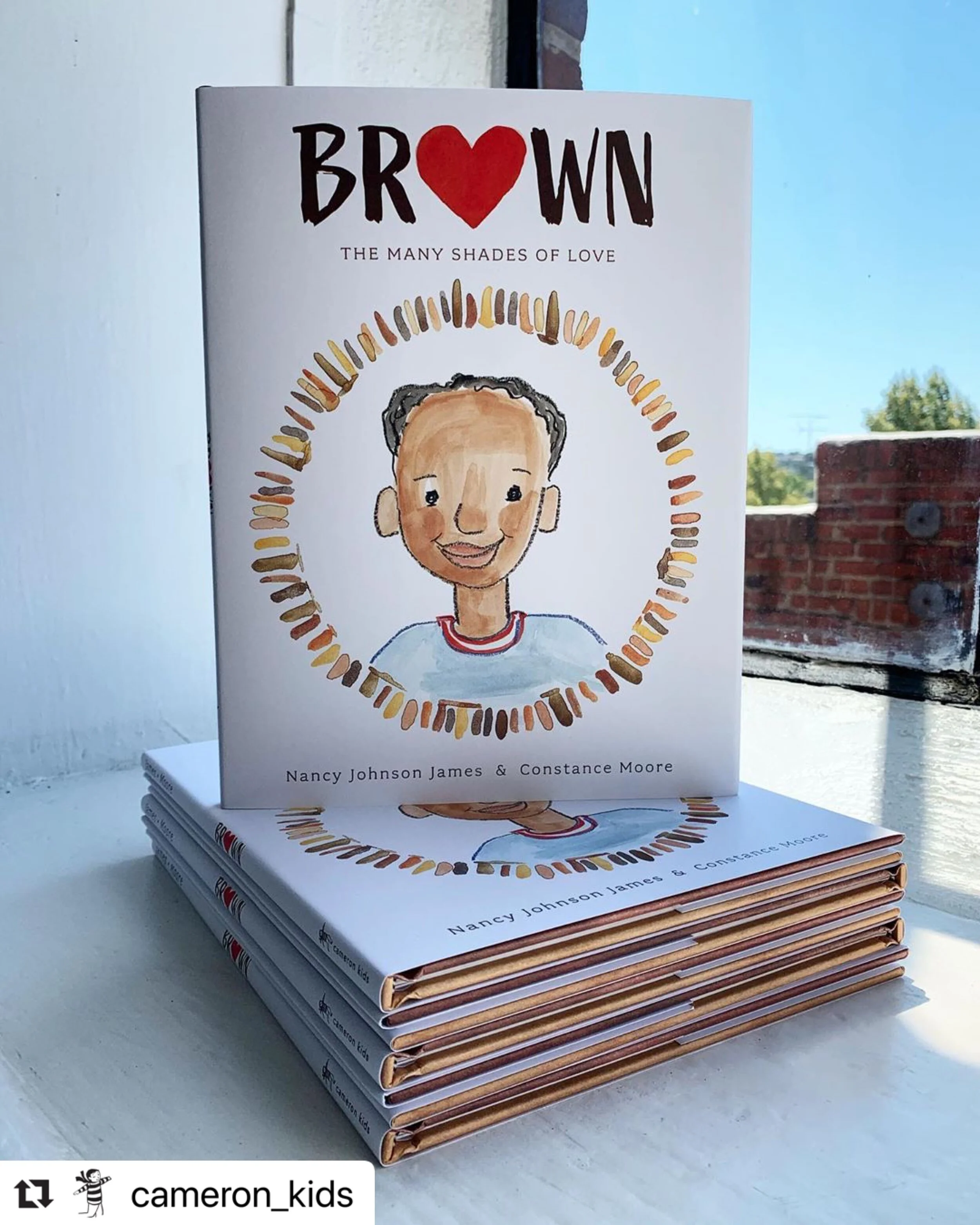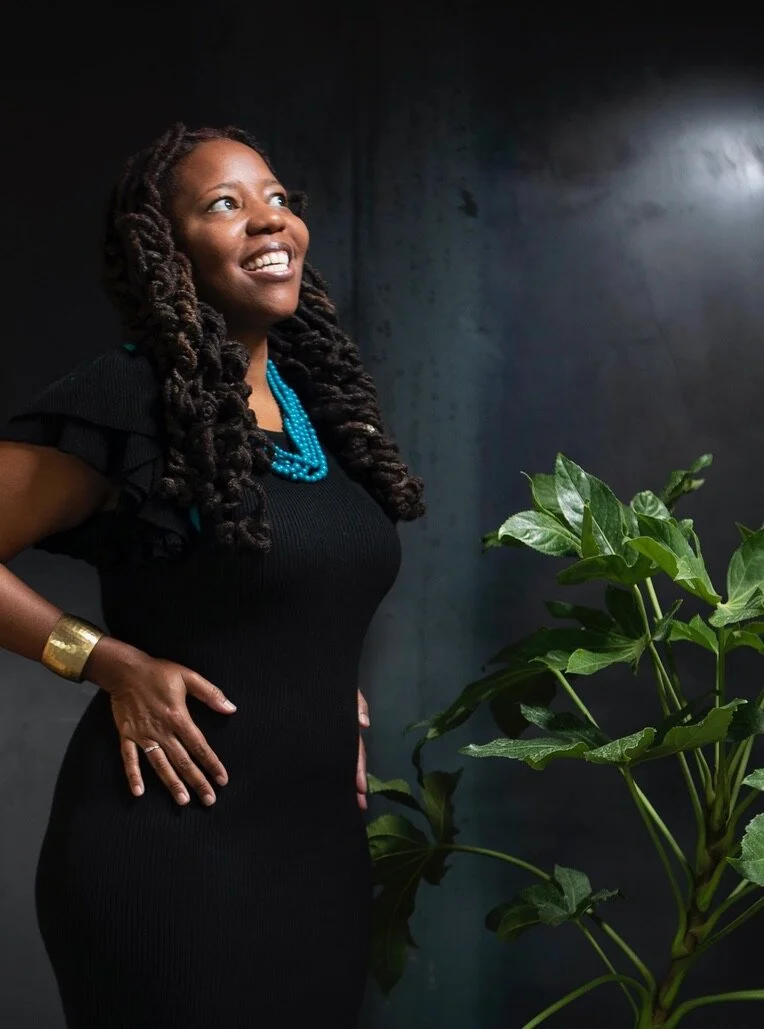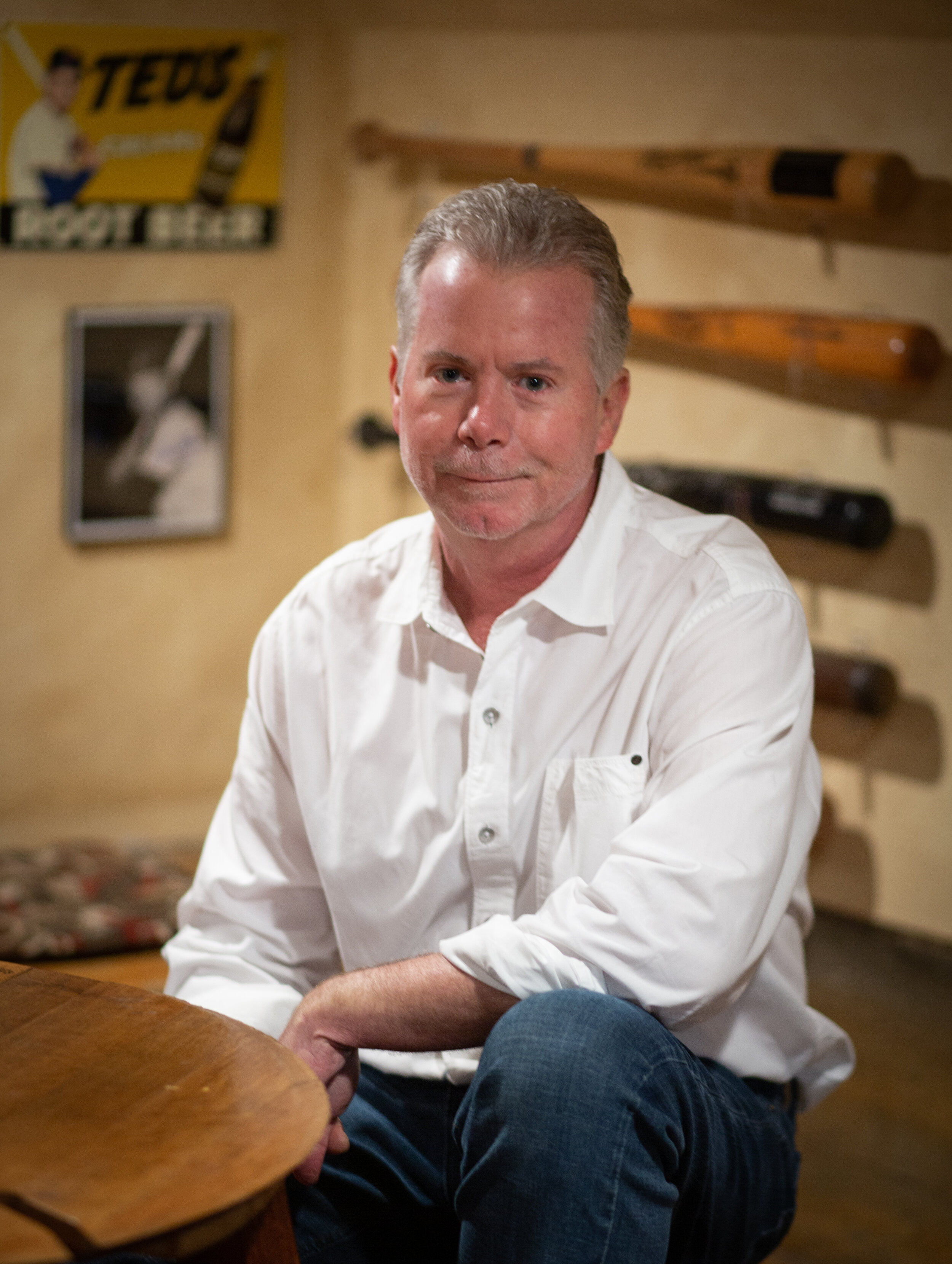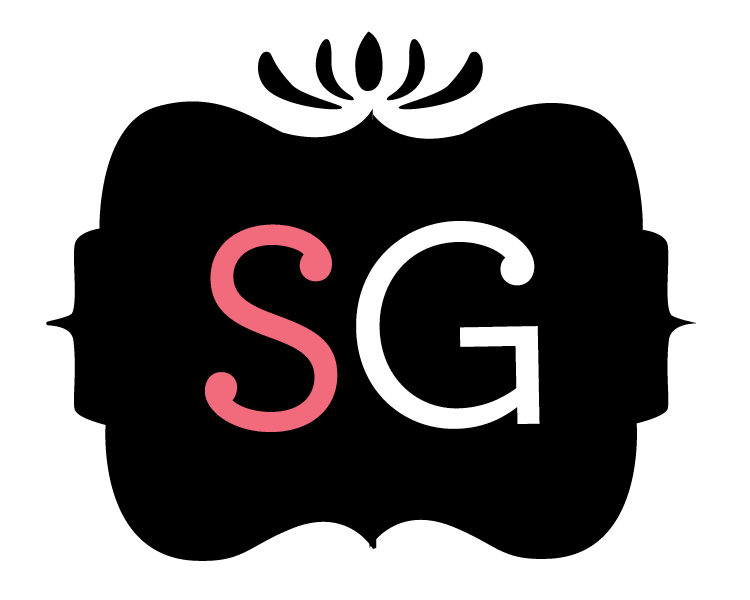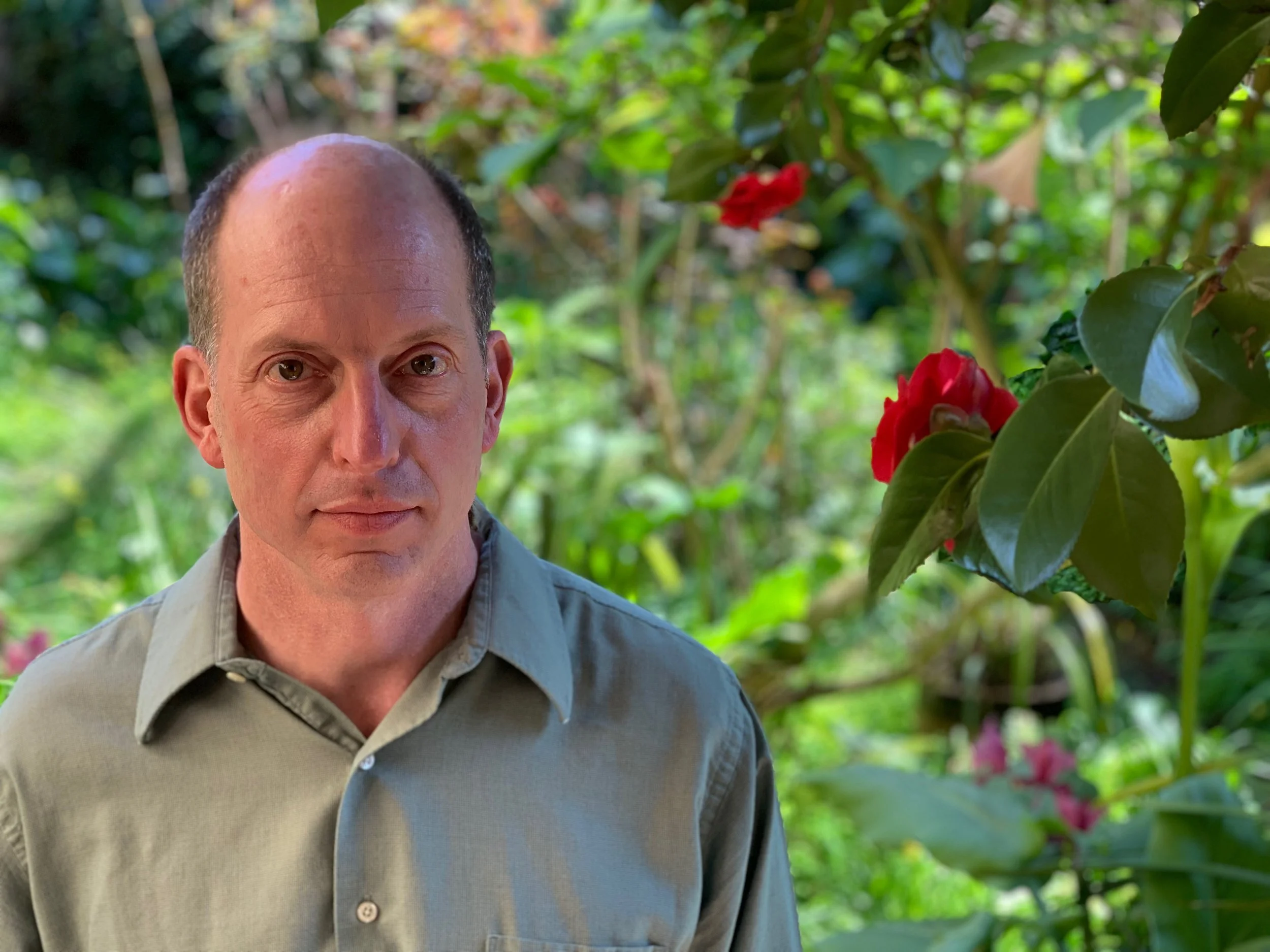Little Lines and Curves: Interview with Dr. John Kruse
I’ve never met a more intelligent, forthright, or sincere writer than John Kruse. He trained as a neuroscientist and has been practicing psychiatry in San Francisco for the last twenty-five years. He and his husband are the parents of twin fifteen year old girls. In his copious spare time he runs marathons, bakes, gardens, and birdwatches. For the last year he has been writing blog posts, and now a book about adult ADHD and Donald Trump.
In Recognizing Adult ADHD: What Donald Trump Can Teach Us About Attention Deficit Hyperactivity Disorder, he uses the president to explain to a general audience the multiple ways ADHD can affect behavior, and to help all of us make more sense of a man for whom ADHD affects everything that gets into his head (or doesn’t) and everything that spews from his mouth.
This book combines solid research, John’s expertise in ADHD, and his astute political observations to offer a satisfying, often funny, and stunningly compassionate perspective on surviving this presidency. Everyone who’s hungry to make sense of our nonsensical political climate should read it.
What does your writing process look like?
I’m an early riser, so getting up at 5am to write isn’t a problem. I know that I am less tired, less distracted, most productive if I write first thing in the morning.
The problem is that I am also a runner, and that the best time for my running is that same first slot in the morning. Unless I am running with others, I won’t even consider going out to run at any other time of the day. So running and writing compete for those early morning hours, which I have resolved with a schedule, saying who gets which days.
The competition is further intensified (or maybe just overthought) because, as someone who has always loved writing, got recognition for writing, but largely put it aside for three decades as I built a career and started a family, I feel that running is one of the most important things that I do to preserve my brain functioning, to allow my brain to continue on as long with this path of public writing as long as I can, even though I waited until my late fifties to really get started.
I love that writing embraces a two-step process of connection. The first half is to assemble the combination of words that, as closely as possible, capture as much of the power, complexity, and nuance of one’s particular thought or observation or sensation. One wields a triumphant, powerful tool if one can achieve this.
But it gets better because in addition to resonating in the echo chamber of one’s own skull, a reader can reconstitute these sequences of little lines and curves on a piece of paper or screen and create anew a revelation, a commiseration, a sense of delight.
Who are your writing heroes?
My writing heroes are authors like Joseph Conrad and Vladimir Nabokov, who wrote great works in their non-native language. As someone who struggled with high school Latin and French, (despite scoring well on AP and standardized tests), and knowing that I will never be able to even really think in another tongue, I marvel at those who can convey a brilliance and fluidity of thought in more than one language.
How is writing like sex?
Writing is like sex in that it can be good and satisfying as a solitary act, but to be really great it has to involve connecting with at least one other person. Computers have made some parts of writing and sex easier but don’t eliminate the hard work required for a wonderful experience. And when writing or sex are truly bad enough, it is hard for them not to be at least somewhat funny. (As long as we are removing violence from the bad sex category.)
Tell us a story about how our brains work.
Our brains can adeptly convince us of falsehoods.
My mother repeatedly, stridently, insistently delivered the message that sex was disgusting, contemptible, wrong, bad, perverse. Her own brother would joke that the only reason they knew she had sex more than once was because she had four children.
In the privacy of our home, she heaped disdain on a high school classmate and fellow swim team member who matured early and had “a hairy belly,” as if he had control over it, and had grown it to flaunt his potential sexuality. Similarly, she disparaged a childhood friend, whose daughter was also my high school classmate, when the mother boasted of her daughter “having a sexy body,” the message being two-fold, that it was a curse to have a shapely body, but even worse to be talking or thinking about it.
In my mother’s world everyone would not only wear burqas but would also never think about what lay beneath them. The source of my mother’s prudishness remains occult, and is only compounded by the bizarre detail that for years she taught sex education at a health museum, where classes of 5th graders from across the city learned about reproduction using giant plaster models of eggs and sperm, and a life-size, transparent, plexiglas woman.
So when I started experiencing same-sex attractions, I could rationalize that I was just an almost-normal straight junior high school boy whose fantasies had been subverted with the constant message that sex was WRONG and BAD and DIRTY. Because of course, those messages were all directed at heterosexuality, since in that era homosexuality was rarely even mentioned. Where else could my mind have gone with any sexual feelings? And what cemented this conviction (at least for a decade) that I was just a heterosexual guy obeying his mother’s prohibitions against hetero-sex was something I learned through library research. (Of course I would seek understanding through books.) What I read was that many of the virulently homophobic politicians and preachers were actually gay themselves. And since I was intellectually comfortable with the premise that people should live their lives according to their innate sexual orientation, since I was not a homophobe, since I was not condemning those who were gay, in my mind this made it even more certain I was not one of these tortured closet cases myself! If I were gay I probably would have been homophobic, which I wasn’t, so I probably wasn’t gay. Makes sense right?
Unfortunately, not only did I learn the wrong things from books, or at least applied the lessons inappropriately, but then I found misinformation in the outer world to reinforce my ignorance.
Towards the end of my freshman year of college, I broached the possibility that I might be gay with an upperclassman who lived on my hall. A straight, athletic, conventionally very attractive, and heterosexually experienced upperclassmen whose approval I craved and whose wisdom about all matters sexual I trusted. He said that there was no such thing as homosexuality and that I had just not found the right girl. Who was I to argue?
It took another five years for me to even bring up the subject with anyone, this time a medical school classmate with all of the same attributes of the upperclassman a half decade earlier, and he gave me an almost identical answer (although he probably said “woman” and not “girl”). Again, from an even more expert authority, so who was I to argue?
Fortunately, my brain kept telling me that my own feelings, my one desires, my own fantasies held more truth, more conviction, and more hope than I had been finding in the world around me. So, at the age of 26, I arranged a six-month post-doc project in Switzerland, where I knew that I would feel less constrained by the distorted image of myself that I had constructed with my family and friends and society at large.
I was able to finally come out to myself, and to others, as a gay man. And it taught me to be even more careful with words, because crazy as they may sound, all of the arguments above followed a compelling logic. It was the initial assumptions that were wrong. And no matter how good your arguments, you can’t arrive at truth unless you are open to accurate premises to begin with. Words build cages as well as set us free.
I coax sexy writers like John Kruse to reveal their creative secrets and processes in writer interviews to inspire you:
Read more about John’s work on his website.
Follow John on Twitter.
Read a few recent Medium articles for a taste of the book’s approach to untangling the relationship between Donald Trump and ADHD.
Buy the book. Recognizing Adult ADHD: What Donald Trump Can Teach Us About Attention Deficit Hyperactivity Disorder is a great read.
Feeling inspired? Book a private session with me, The Sexy Grammarian. You always leave private sessions with homework and inspiration, and the first session is always free.

